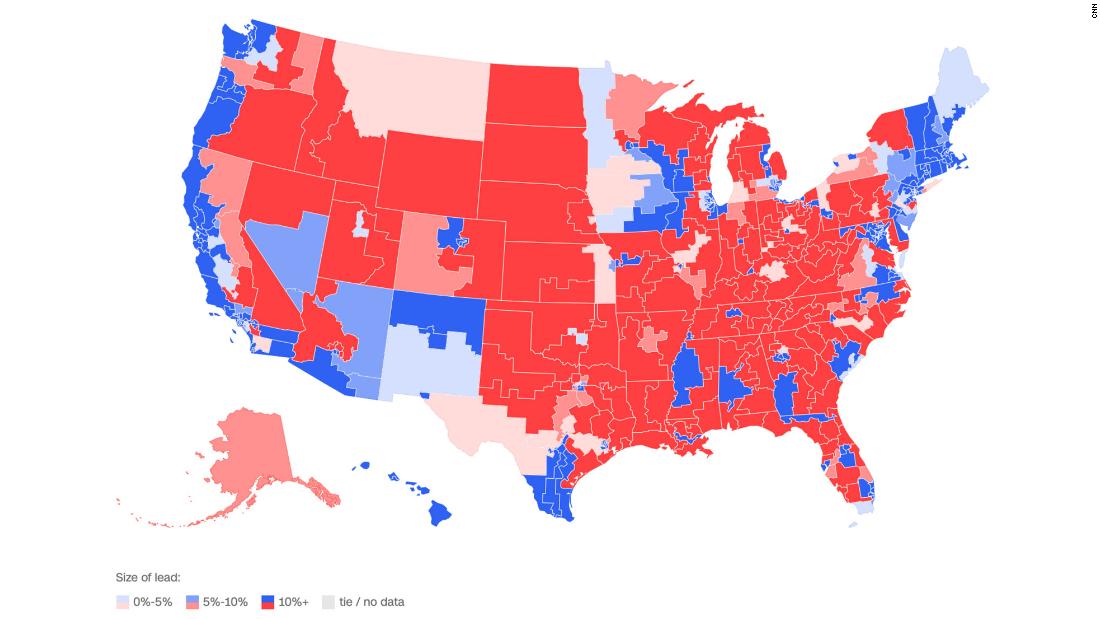[ad_1]
Sure, Rep. Jim Sensenbrenner of Wisconsin leaving after 21(!) terms is an interesting story. But neither Sensenbrenner’s seat nor that of fellow retiring Rep. Bill Flores (Texas) are in any danger of flipping to Democrats — given the clear GOP lean of both.
But looks can be deceiving in life and in politics! The retirements of Sensenbrenner and Flores are not, in a vacuum, all that big a deal. But we don’t live in a political vacuum. If you take a step back from the twin Republican retirements on Wednesday, you see that Republicans now have 14 House members heading for the exits after next November as compared to just four for Democrats. (California Rep. Susan Davis announced she wouldn’t run again on Wednesday too!)
And it’s not just the raw number disparity between the sides that tells the story. Of the 14 Republicans leaving the House in 2020, only two are abandoning their House seats to run for statewide office — either governor or senator. The rest are just, well, leaving. By comparison, at this point in the 2018 cycle, 14 House Republicans had announced they were leaving, but nine of the 14 were seeking other, higher offices.
It doesn’t take a political scientist to look at the GOP retirements (without other offices to run for) and conclude that being in the House minority with President Donald Trump in the White House just isn’t a lot of fun.
In fact, it’s the worst of both political worlds.
The House minority can do almost nothing to push an agenda or pass legislation. Much of the “success” is the House minority is winning relatively arcane procedural fights, battles that even a somewhat close observer of Congress has no clue are even happening.
Then there is the electoral uncertainty that goes along with being a member of Trump’s party. This is a President who prides himself on his unorthodoxy and his willingness to say and do deeply politically incorrect things. While that style and approach may work for Trump (we’ll have a conclusive answer to that question next November) it clearly has hurt his party among critical constituencies, including suburban women and Hispanics. Fear of losing — amid clear demographic shifts that were at work in the country prior to Trump but have been exacerbated by the President — are clearly behind what has been termed the “Texodus”: Five Republican members from Texas all leaving the House after next year.
So that’s where we are. But what has to worry Republicans is the signal these dozen decisions to simply walk away from Congress send to wavering GOP members beginning to seriously contemplate their own political futures.
It’s hard to describe just how much looking around and keeping-up-with-the-Joneses sort of thinking happens within the halls of Congress. Every time a member of Congress loses a primary, for example, it’s like someone in the family has died and, at their funeral, your doctor has given you a terminal diagnosis, too.
Everyone is watching everyone else at all times. All decisions are immediately framed in a what-does-this-mean-for-me context. (Members of Congress — they’re just like us!) And so, when you see a bunch of your colleagues making the tough decision to not only leave Congress but do so without a next obvious political step in mind, it makes you think. Or maybe rethink.
What’s dangerous about that sort of thought process for House Republicans is that the possibility now exists that the retirements become a self-fulfilling prophecy. An “if everyone else is going, I guess I should too” sort of thing. And if that happens, then House GOPers could be facing the equivalent of an avalanche; they know it’s coming but are absolutely powerless to stop it.
Republican retirements — particularly in a series of hard-to-hold seats like Will Hurd’s in Texas — have put a significant damper on the hopes. Now the party seems to have to worry more about the possibility that their retirement problem teeters over the edge into avalanche territory, a development that, if it comes to pass, could hand Democrats control over the House for the foreseeable future.
[ad_2]
Source link

